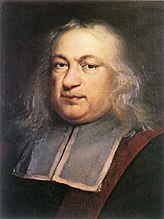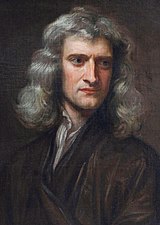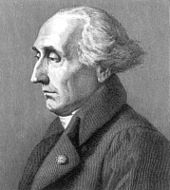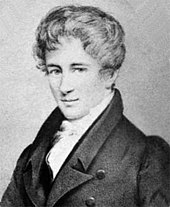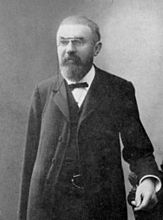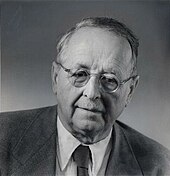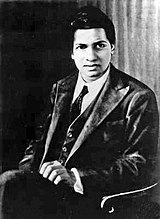Maths is Fun?
Monday, 7 April 2014
People who actually thought maths was fun?!? -.-"
A mathematician (AKA BORING PERSON WITH NO LIFE OR GIRLFRIEND, CLEARLY..) is a person with an extensive knowledge of mathematics who uses this knowledge in their work, typically to solve mathematical problems. Mathematics is concerned with numbers, data, collection, quantity, structure, space, models and change.
Mathematicians involved with solving problems outside of pure mathematics are called applied mathematicians. Applied mathematicians are mathematical scientists who, with their specialized knowledge and professional methodology, approach many of the imposing problems presented in related scientific fields. With professional focus on a wide variety of problems, theoretical systems, and localized constructs, applied mathematicians work regularly in the study and formulation of mathematical models. Mathematicians and applied mathematicians are considered to be two of the STEM (science, technology, engineering, and mathematics) careers.[1]
The discipline of applied mathematics concerns itself with mathematical methods that are typically used in science, engineering, business, and industry; thus, "applied mathematics" is a mathematical science with specialized knowledge. The term "applied mathematics" also describes the professional specialty in which mathematicians work on problems, often concrete but sometimes abstract. As professionals focused on problem solving, applied mathematicians look into the formulation, study, and use of mathematical models in science, engineering, business, and other areas of mathematical practice.
AAAAND, NOW INTRODUCING THE PEOPLE WHO HAD NO LIFE OR GIRLFRIEND (OR BOYFRIEND)... AND WHO DECIDED TO MAKE OUR LIVES MISERABLE! T_T
Some notable mathematicians include Johann Bernoulli, Jacob Bernoulli, Aryabhata, Bhāskara II, Nilakantha Somayaji, Andrey Kolmogorov, Alexander Grothendieck, John von Neumann, Alan Turing, Kurt Gödel, Augustin-Louis Cauchy, Georg Cantor, William Rowan Hamilton, Carl Jacobi, Nikolai Lobachevsky, Joseph Fourier, Pierre-Simon Laplace,Alonzo Church, and Nikolay Bogolyubov.
A blast from math's past!!
The evolution of mathematics might be seen as an ever-increasing series of abstractions, or alternatively an expansion of subject matter. The first abstraction, which is shared by many animals,[19] was probably that of numbers: the realization that a collection of two apples and a collection of two oranges (for example) have something in common, namely quantity of their members.
Evidenced by tallies found on bone, in addition to recognizing how to count physical objects, prehistoricpeoples may have also recognized how to count abstract quantities, like time – days, seasons, years.[20]
More complex mathematics did not appear until around 3000 BC, when the Babylonians and Egyptians began using arithmetic, algebra and geometry for taxation and other financial calculations, for building and construction, and for astronomy.[21] The earliest uses of mathematics were in trading, land measurement,painting and weaving patterns and the recording of time.
In Babylonian mathematics elementary arithmetic (addition, subtraction, multiplication and division) first appears in the archaeological record. Numeracy pre-dated writing and numeral systems have been many and diverse, with the first known written numerals created by Egyptians in Middle Kingdom texts such as theRhind Mathematical Papyrus.[citation needed]
Between 600 and 300 BC the Ancient Greeks began a systematic study of mathematics in its own right withGreek mathematics.[22]
Mathematics has since been greatly extended, and there has been a fruitful interaction between mathematics and science, to the benefit of both. Mathematical discoveries continue to be made today. According to Mikhail B. Sevryuk, in the January 2006 issue of the Bulletin of the American Mathematical Society, "The number of papers and books included in the Mathematical Reviews database since 1940 (the first year of operation of MR) is now more than 1.9 million, and more than 75 thousand items are added to the database each year. The overwhelming majority of works in this ocean contain new mathematical theorems and their proofs."[23]
Etymology
The word mathematics comes from the Greek μάθημα (máthēma), which, in the ancient Greek language, means "that which is learnt",[24] "what one gets to know", hence also "study" and "science", and in modern Greek just "lesson". The word máthēma is derived from μανθάνω (manthano), while the modern Greek equivalent is μαθαίνω (mathaino), both of which mean "to learn". In Greece, the word for "mathematics" came to have the narrower and more technical meaning "mathematical study" even in Classical times.[25] Its adjective is μαθηματικός (mathēmatikós), meaning "related to learning" or "studious", which likewise further came to mean "mathematical". In particular, μαθηματικὴ τέχνη(mathēmatikḗ tékhnē), Latin: ars mathematica, meant "the mathematical art".
In Latin, and in English until around 1700, the term mathematics more commonly meant "astrology" (or sometimes "astronomy") rather than "mathematics"; the meaning gradually changed to its present one from about 1500 to 1800. This has resulted in several mistranslations: a particularly notorious one is Saint Augustine's warning that Christians should beware of mathematici meaning astrologers, which is sometimes mistranslated as a condemnation of mathematicians.[citation needed]
The apparent plural form in English, like the French plural form les mathématiques (and the less commonly used singular derivative la mathématique), goes back to the Latin neuter plural mathematica (Cicero), based on the Greek plural τα μαθηματικά (ta mathēmatiká), used by Aristotle (384–322 BC), and meaning roughly "all things mathematical"; although it is plausible that English borrowed only the adjective mathematic(al) and formed the noun mathematics anew, after the pattern of physics and metaphysics, which were inherited from the Greek.[26] In English, the noun mathematics takes singular verb forms. It is often shortened to maths or, in English-speaking North America, math.[27]
Introduction and what not?
Mathematics is the abstract study of topics such as quantity (numbers),[2] structure,[3] space,[2] and change.[4][5][6] There is a range of views among mathematicians and philosophers as to the exact scope and definition of mathematics.[7][8]
Mathematicians seek out patterns[9][10] and use them to formulate new conjectures. Mathematicians resolve the truth or falsity of conjectures by mathematical proof. When mathematical structures are good models of real phenomena, then mathematical reasoning can provide insight or predictions about nature. Through the use of abstraction and logic, mathematics developed from counting, calculation,measurement, and the systematic study of the shapes and motions of physical objects. Practical mathematics has been a human activity for as far back as written records exist. The research required to solve mathematical problems can take years or even centuries of sustained inquiry.
Rigorous arguments first appeared in Greek mathematics, most notably in Euclid's Elements. Since the pioneering work of Giuseppe Peano(1858–1932), David Hilbert (1862–1943), and others on axiomatic systems in the late 19th century, it has become customary to view mathematical research as establishing truth by rigorous deduction from appropriately chosen axioms and definitions. Mathematics developed at a relatively slow pace until the Renaissance, when mathematical innovations interacting with new scientific discoveries led to a rapid increase in the rate of mathematical discovery that has continued to the present day.[11]
Galileo Galilei (1564–1642) said, "The universe cannot be read until we have learned the language and become familiar with the characters in which it is written. It is written in mathematical language, and the letters are triangles, circles and other geometrical figures, without which means it is humanly impossible to comprehend a single word. Without these, one is wandering about in a dark labyrinth."[12] Carl Friedrich Gauss (1777–1855) referred to mathematics as "the Queen of the Sciences".[13] Benjamin Peirce (1809–1880) called mathematics "the science that draws necessary conclusions".[14] David Hilbert said of mathematics: "We are not speaking here of arbitrariness in any sense. Mathematics is not like a game whose tasks are determined by arbitrarily stipulated rules. Rather, it is a conceptual system possessing internal necessity that can only be so and by no means otherwise."[15] Albert Einstein (1879–1955) stated that "as far as the laws of mathematics refer to reality, they are not certain; and as far as they are certain, they do not refer to reality."[16] French mathematician Claire Voisin states "There is creative drive in mathematics, it's all about movement trying to express itself." [17]
Mathematics is used throughout the world as an essential tool in many fields, including natural science, engineering, medicine, finance and the social sciences. Applied mathematics, the branch of mathematics concerned with application of mathematical knowledge to other fields, inspires and makes use of new mathematical discoveries, which has led to the development of entirely new mathematical disciplines, such as statistics and game theory. Mathematicians also engage in pure mathematics, or mathematics for its own sake, without having any application in mind. There is no clear line separating pure and applied mathematics, and practical applications for what began as pure mathematics are often discovered.[18]









.jpg)








